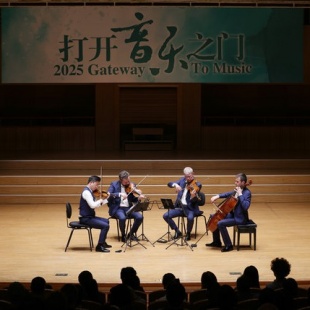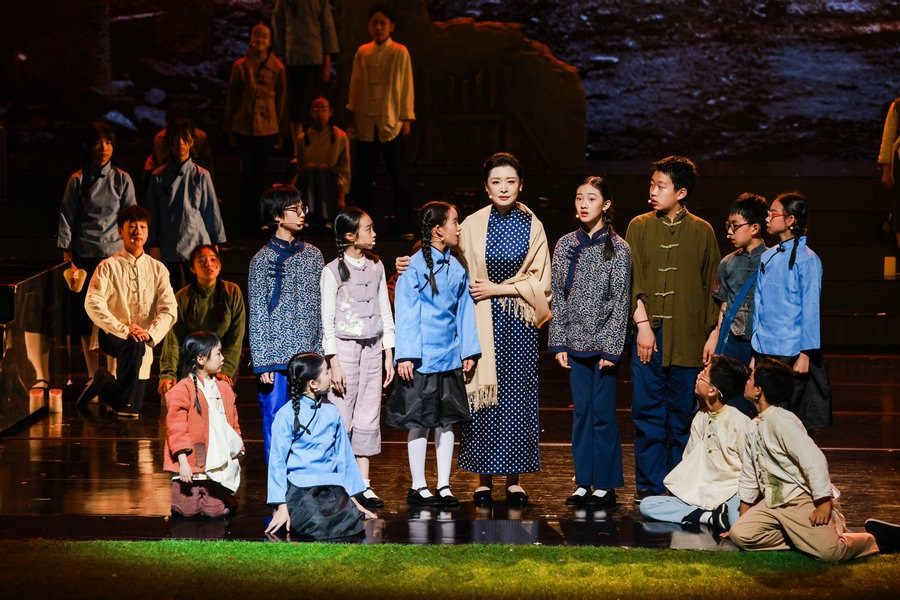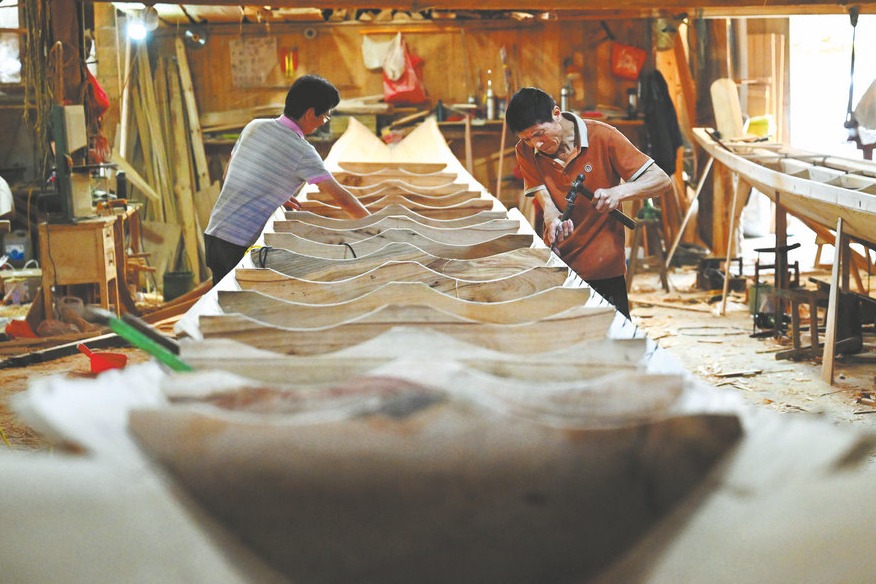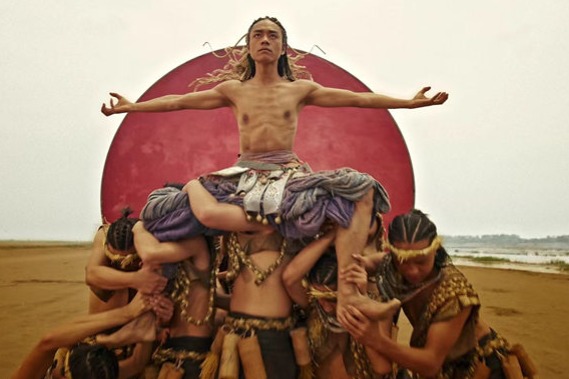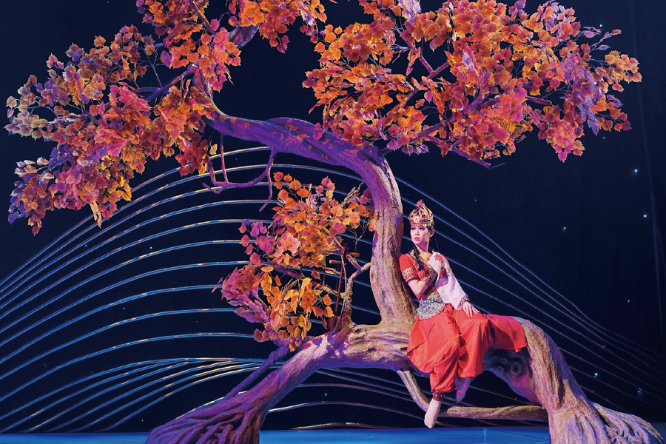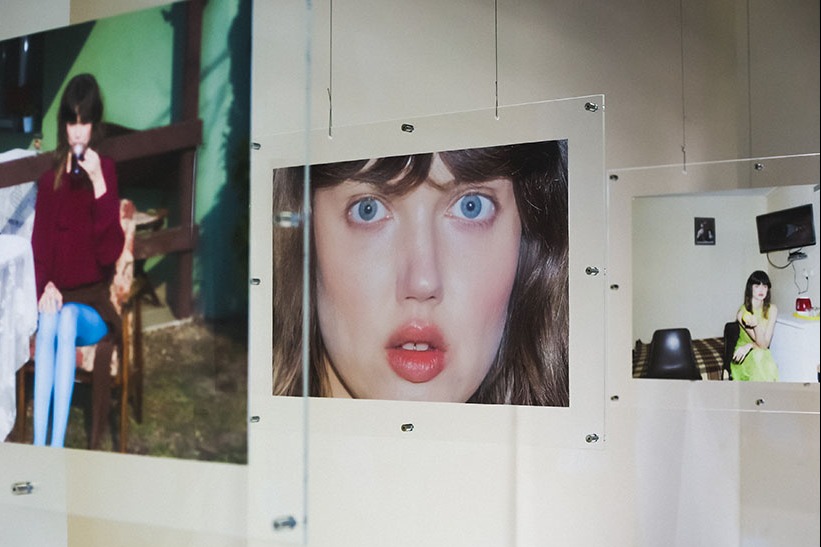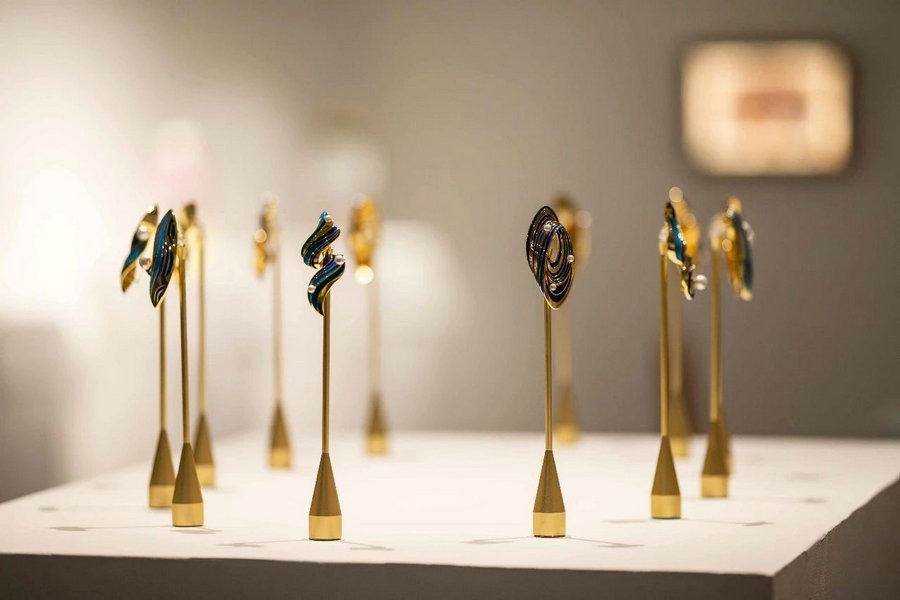Fantastic foursome's strings sing in Beijing

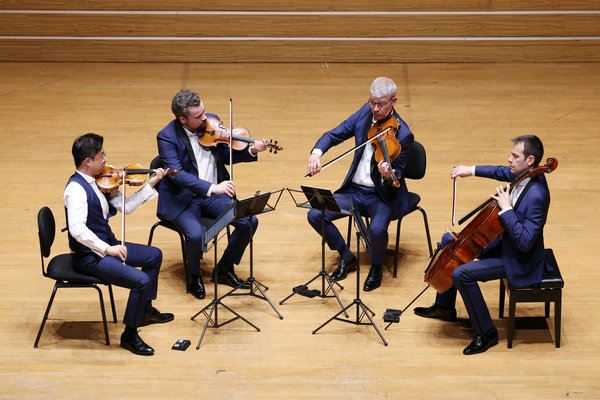
Quatuor Diotima, a string quartet featuring violinist Yun-Peng Zhao, violinist Leo Marillier, violist Franck Chevalier and cellist Alexis Descharmes, performed at the Beijing Concert Hall on May 29.
They performed Austrian composer Anton Bruckner's String Quartet in C Minor and British composer Benjamin Britte's String Quartet No 1 in D Major during the first half of the concert.
Written in 1862, Bruckner's String Quartet in C Minor remained hidden for more than 160 years before it was discovered in the early 21st century. The work was written during a period when Bruckner was still honing his skills as a composer and was yet to find the full expression of his musical identity. Even in this early chamber work, Bruckner's tendency toward a spiritual and sometimes transcendent musical language is evident. The String Quartet in C Minor is marked by its intense emotional depth, which can be interpreted as a precursor to the powerful spirituality that would later define much of his symphonic music.
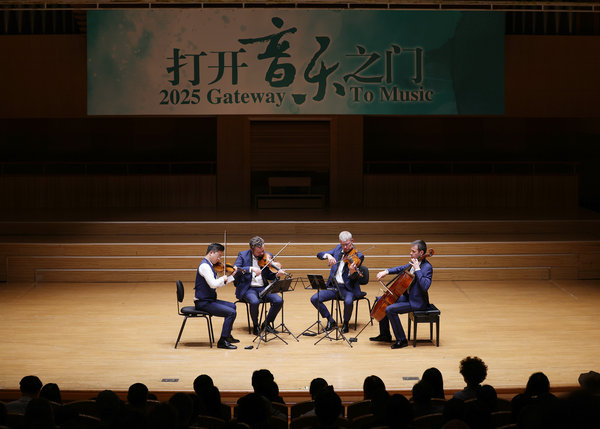
Britten composed the String Quartet No 1 in 1941, amid the turmoil of World War II. A key work in the string quartet repertoire, the piece exhibits a great deal of internal conflict and a dramatic intensity, which was part of Britten's wider musical language.
During the second half of the concert, Quatuor Diotima performed French composer Maurice Ravel's String Quartet in F Major. Ravel composed this work during a period when French music was transitioning from the late romantic style into Impressionism and early Modernism. This piece, combining the classical four-movement structure with pentatonic scales and Spanish dance rhythms, is rigorous and full of vitality.
Founded in 1996, Quatuor Diotima has enjoyed nearly 30 years of collaboration and appears regularly in the world's finest halls and concert series. The concert in Beijing was part of the 18th edition of the Croisements Festival, commemorating the 60th anniversary of China-France diplomatic relations and the China-France Year of Culture and Tourism.


